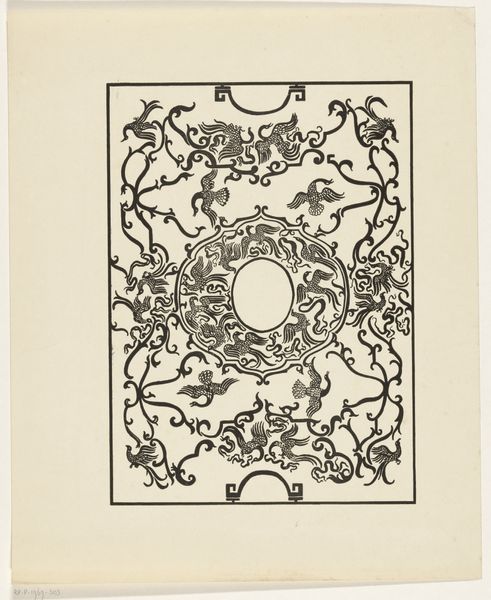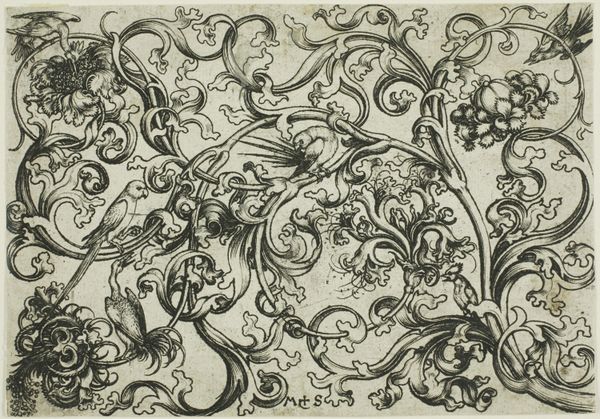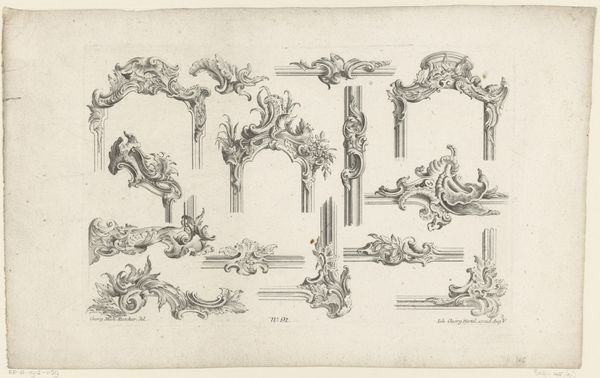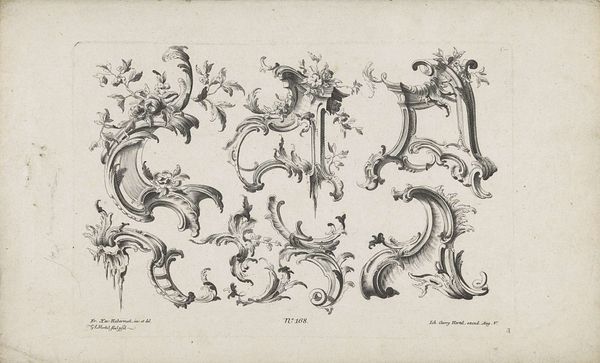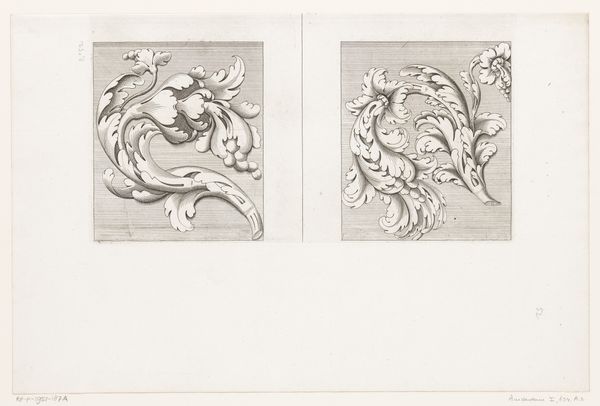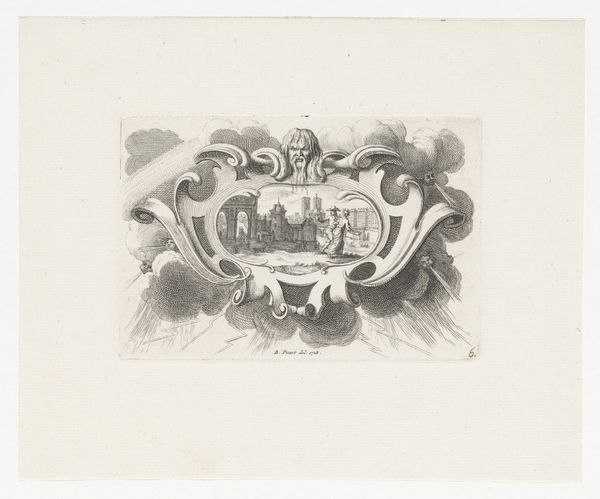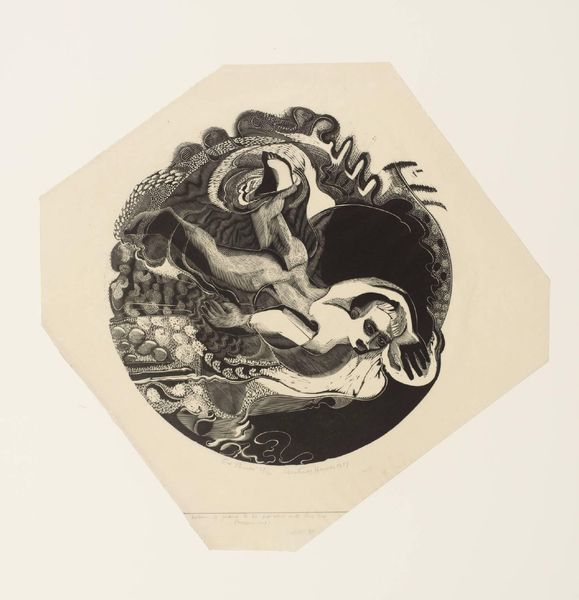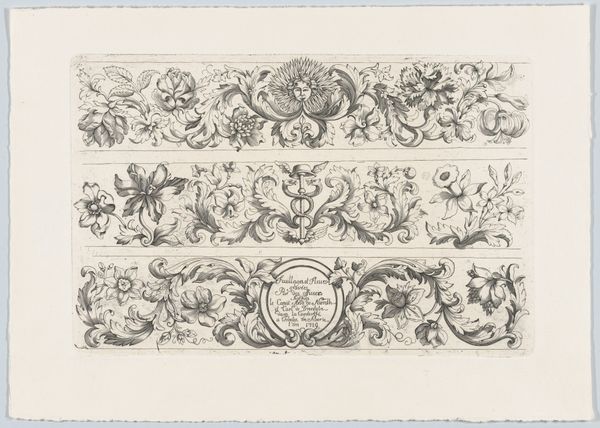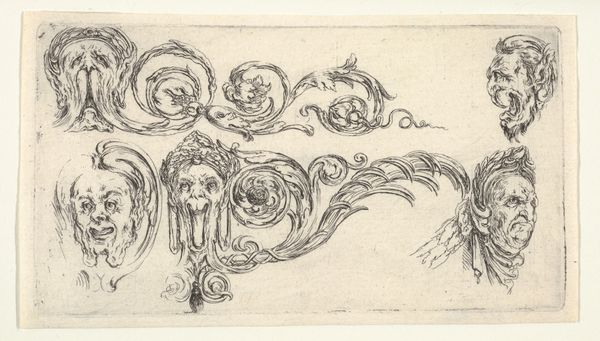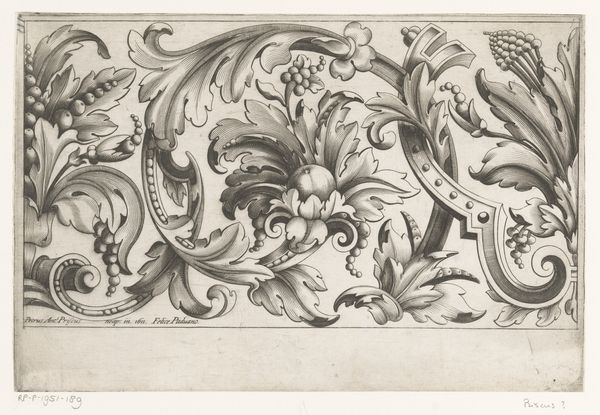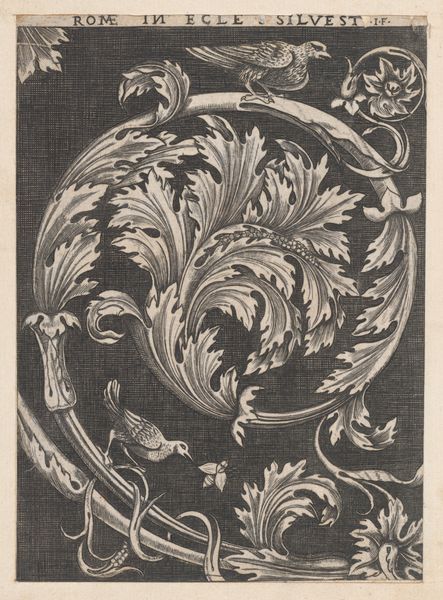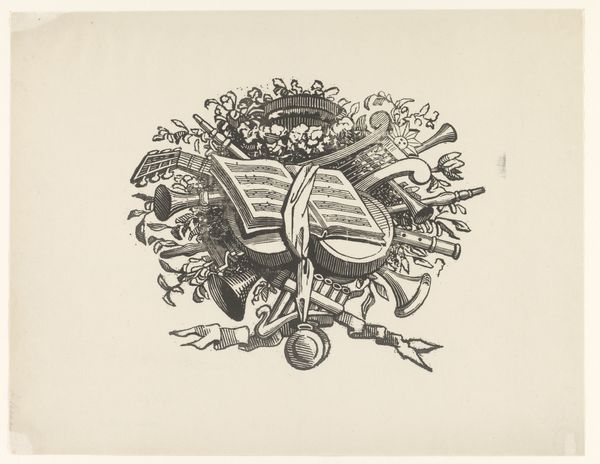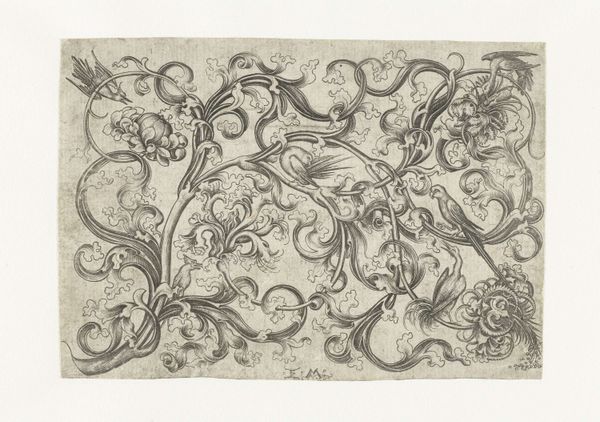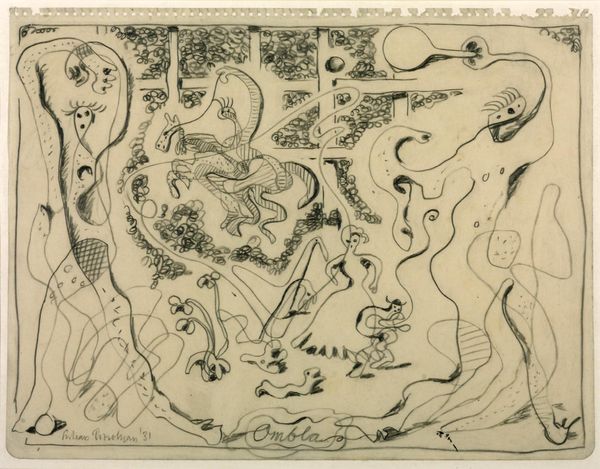
Ontwerp voor een ex libris met monogram en leeuwen 1874 - 1945
0:00
0:00
careladolphlioncachet
Rijksmuseum
drawing, ink, pen
#
drawing
#
art-nouveau
#
pen drawing
#
figuration
#
ink line art
#
ink
#
geometric
#
pen-ink sketch
#
pen work
#
symbolism
#
pen
Dimensions: height 348 mm, width 282 mm
Copyright: Rijks Museum: Open Domain
Editor: This is "Ontwerp voor een ex libris met monogram en leeuwen," a design for a bookplate with a monogram and lions, dating from between 1874 and 1945 by Carel Adolph Lion Cachet. It’s a pen and ink drawing. The repeating lion motifs are quite striking; almost like a heraldic crest. How would you interpret the historical significance of this artwork? Curator: Well, from a historical perspective, bookplates signal status and ownership. This piece comes from the Art Nouveau period and displays elements of Symbolism, so it represents a late 19th, early 20th-century sensibility where personal identity was often cloaked in layered symbolic forms. What do the lions and geometric shapes evoke for you? Editor: A sense of pride and perhaps mystery. The lions suggest power, and the empty space in the middle makes me wonder what initials would have been placed there. Curator: Precisely. Now consider that such a design wasn't just a decoration, but a statement of the owner’s taste and affiliation with certain social and intellectual circles. The bookplate served as a miniature public declaration. Do you think its aesthetic makes a bold or subtle declaration? Editor: Hmm, I would argue that, while the muted palette suggests the subtle, the lions arranged almost like they're guarding the monogram suggests this person wanted to project boldness. Curator: Indeed. So this reveals the intricate relationship between individual expression and the conventions of visual culture during the period. Bookplates, seemingly minor objects, carried considerable social and cultural weight. It makes you think about how people present themselves. Editor: I hadn’t considered the broader social context that such a small piece could carry. Thanks for shedding light on it! Curator: My pleasure. It is always fascinating to examine the cultural footprint left by these little objects.
Comments
No comments
Be the first to comment and join the conversation on the ultimate creative platform.
